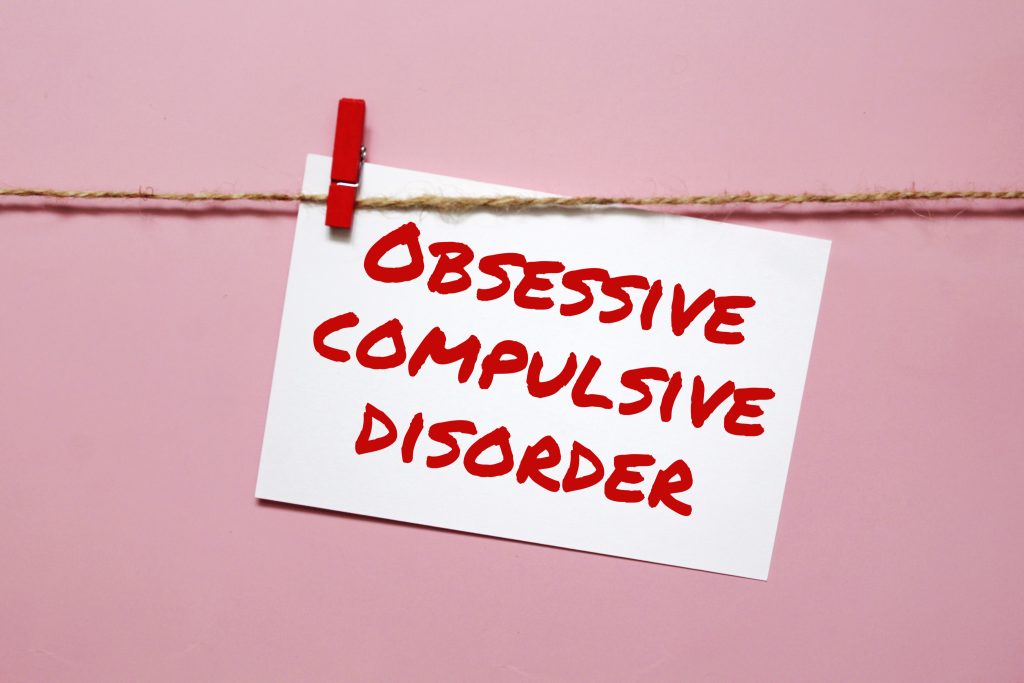Do you or someone you know suffer from OCD? Obsessive Compulsive Disorder can be a debilitating condition that interferes with daily life. If you are seeking OCD treatment in Copenhagen, it is essential to consider your options carefully. There are various treatment options available, including therapy, medication, or a combination of both. However, the key to effective treatment is to find a qualified specialist who understands OCD and can offer personalized treatment. In this article, we will explore the different types of OCD treatment available and provide tips on how to find the best OCD specialist in Copenhagen for you.
What is OCD?
Obsessive-compulsive disorder (OCD) is a widely recognized mental health condition that affects millions of people worldwide. OCD is a type of anxiety disorder characterized by recurring, unwanted thoughts and behaviors that can be time-consuming, disruptive, and distressing to the individual experiencing them. People with OCD often feel that they must perform ritualistic behaviors or compulsions in order to alleviate stress or prevent something bad from happening, but these actions can actually worsen their anxiety and interfere with their daily life.

Types of OCD Treatment
Obsessive-Compulsive Disorder (OCD) is a mental health condition that can cause distressing and persistent thoughts and behaviors that may interfere with a person’s daily life. But the good news is that OCD can be effectively treated with various types of treatment.
1. Cognitive Behavioral Therapy (CBT): This type of therapy is widely used in the treatment of OCD. CBT aims to change the thought patterns that trigger compulsive behavior by identifying and challenging negative thoughts. CBT can help individuals learn to cope with their OCD symptoms by teaching them how to replace their obsessive thoughts with more positive and rational beliefs.
2. Exposure and Response Prevention (ERP): This therapy is based on the premise that individuals practice confronting their fears and avoiding compulsive behaviors. ERP involves gradually exposing individuals to their feared situations and preventing them from performing compulsions. Over time, the individual will learn to tolerate anxiety and gradually reduce their compulsions. ERP has been found to be a highly effective treatment for OCD.
3. Medication-Based Treatments: Certain medications, such as antidepressants, have been found to be effective in treating OCD symptoms. Antidepressants, such as SSRIs (Selective Serotonin Reuptake Inhibitors), are most commonly used to treat OCD. These medications help to increase the levels of certain neurotransmitters in the brain that regulate mood and anxiety.
Joining a support group can also be a useful form of treatment. Support groups offer individuals an opportunity to connect with others who are going through similar experiences and share their coping strategies.
It’s important to note that not all individuals will respond to every type of treatment, and it’s essential to work with a qualified mental health professional to determine the best course of action for each person. Additionally, individuals may be referred to a psychology student who is trained in the type of treatment that they need.
Finding a Psychiatrist in Copenhagen
Living with a mental health condition such as OCD can be challenging, but seeking professional help can greatly improve your quality of life. Finding the right psychiatrist in Copenhagen can be a daunting task, but with the right information, it doesn’t have to be. Here are some tips on finding the best OCD treatment in Copenhagen.
Searching for a Local Professional in Copenhagen for Effective OCD Treatment
If you or a loved one is struggling with Obsessive-Compulsive Disorder (OCD), it can be overwhelming to navigate the different treatment options available. The good news is, there are licensed psychologists in Copenhagen who specialize in OCD treatment and can provide effective care.
To begin your search for a local professional, it’s important to determine what type of OCD treatment is needed. Cognitive Behavioral Therapy (CBT) and Exposure and Response Prevention (ERP) are commonly used treatments for OCD. It’s essential to find a licensed psychologist who is experienced in using these therapies to treat OCD and related disorders.
Additionally, consider the location of the professional and whether they offer in-person or online therapy sessions. If you prefer online therapy, ensure that the therapist has experience in providing virtual treatment for OCD. Many licensed psychologists offer online sessions, which can be a convenient and cost-effective option for those with busy schedules or who live outside the city.
When contacting a potential OCD therapist, be sure to describe the type of therapy needed. Let the therapist know if you prefer CBT, ERP, or medication-based treatments. Professional therapists will work with you to develop a customized treatment plan that meets your particular needs.
Considerations when Choosing an OCD Specialist
When facing OCD, finding the right treatment specialist is critical for success. It is essential to consider a variety of factors to ensure that the specialist has the necessary experience and training to provide effective care. Here are some important considerations when selecting an OCD behandling i København K.
First and foremost, it’s crucial to choose a licensed psychologist who has a proven track record in treating OCD and mental health issues. An experienced specialist will be better equipped to recognize and address the unique challenges that OCD patients face.
Another significant factor to consider is whether the OCD specialist has experience working with your specific subtype of OCD or with the population group with which you identify. For example, some specialists may be more proficient in treating those with severe OCD or with OCD-related disorders, such as Tourette’s syndrome. Others may have experience working specifically with accident victims or couples.
Cultural differences and language barriers can also pose challenges for effective OCD therapy, so it’s essential to consider these factors when selecting an OCD specialist. Some licensed psychologists provide treatment services in multiple languages besides Danish and have a good understanding of the cultural differences that may impact therapy.
Understanding Credentials and Licensure Requirements
When it comes to treating OCD and other mental health disorders in Copenhagen, it’s important to understand the different types of professionals who are licensed and qualified to provide treatment. In general, licensed psychologists and psychiatrists are the most common types of professionals who provide OCD treatment in Copenhagen.
Licensed psychologists in Copenhagen are required to have a master’s or doctoral degree in psychology and to have completed a certain amount of supervised clinical experience before they can obtain their license. They are trained to provide evidence-based therapies, such as Cognitive Behavioral Therapy (CBT) and Exposure and Response Prevention (ERP), which are effective treatments for OCD and related disorders.
To ensure that mental health professionals in Copenhagen meet the necessary licensure requirements and regulatory standards, there are several professional organizations and regulatory bodies in place. The Psykolognævnet oversees the licensure and regulation of licensed psychologists in Denmark, while the Dansk Psykoterapeutforening is a professional organization for mental health professionals in Denmark, including licensed psychologists and other mental health practitioners.
In summary, choosing a licensed and qualified mental health professional is crucial when seeking treatment for OCD in Copenhagen. Licensed psychologists and psychiatrists are the most common types of professionals who provide treatment, and it’s important to consider their qualifications and licensure status when selecting a provider. Regulatory bodies and professional organizations, such as the Psykolognævnet and Dansk Psykoterapeutforening, can provide additional information and resources to help individuals find a qualified provider.
Exploring Different Types of OCD Treatment Available in Copenhagen
Living with obsessive-compulsive disorder (OCD) can be a challenging experience. OCD is a mental health condition that affects a person’s thoughts and behaviors, causing them to experience intrusive, unwanted thoughts or images (obsessions) and perform repetitive behaviors or mental acts (compulsions) to relieve the resulting anxiety and distress. If you are living with OCD in Copenhagen, it is essential to understand the various types of OCD treatment available to explore options that are best suited for your needs.
Cognitive Behavioral Therapy (CBT)
When it comes to treating Obsessive-Compulsive Disorder (OCD), Cognitive Behavioral Therapy (CBT) is a highly recommended form of treatment. This therapy focuses on the connection between an individual’s thoughts and behaviors. With CBT, individuals can break free from detrimental habits that they develop over time, thus, improving their quality of life.
The primary focus of CBT is to identify and change negative thinking patterns. An OCD patient, for instance, may have persistent and distressing thoughts about contamination, dirt, or disease. Such thoughts lead to repetitive and uncontrollable behaviors like frequent hand washing. The goal of CBT is to change the patient’s thinking pattern by challenging the accuracy of those thoughts and changing how they respond to them.
CBT aims to teach individuals techniques that help them handle difficult situations better. One of those techniques is identifying the catalyst for the problem and adopting psychological flexibility. By identifying what triggers negative thoughts, individuals can develop mechanisms to stop, re-frame, and change those thought patterns.
Another technique used in CBT is Mindfulness. Mindfulness is the practice of paying attention to the present moment without judgment. It helps individuals increase their attentiveness and enjoyment in daily life. This technique helps patients focus on what is here and now, rather than dwelling on past experiences or worrying about the future. Through mindfulness practice, individuals can recognize their thoughts, feelings, and sensations, and learn to cope with them effectively.
Exposure and Response Prevention (ERP)
Exposure and Response Prevention (ERP) is a type of cognitive-behavioral therapy that is effective in treating OCD. ERP involves exposing the patient to situations and objects that trigger their obsessions while simultaneously restricting their compulsive behaviors. This approach works by systematically desensitizing patients to their fears, and teaching them to develop healthy coping strategies to manage their anxiety.
During ERP therapy, patients are encouraged to confront their compulsions while resisting the urge to engage in them. This is done to help the patient break the cycle of compulsions and develop coping strategies to manage their anxiety. ERP therapy aims to help patients gradually face their fears and learn to cope with the discomfort they experience without engaging in compulsions.
ERP can take varying lengths of time, depending on the individual and the severity of their OCD symptoms. It involves creating a hierarchy of anxiety-provoking situations and levels of exposure, starting with less challenging situations and gradually moving towards more challenging ones.
The ultimate goal of ERP therapy is to help patients develop the skills needed to resist the urge to engage in their compulsive behaviors. Through this therapy, patients learn to tolerate the discomfort they experience without resorting to their compulsions, leading to lasting change.
Different Forms of Medication-Based Treatment Options for OCD in Copenhagen
OCD can be a debilitating disorder that negatively impacts an individual’s quality of life. Although medication is not a cure for OCD, it can be an effective tool in reducing symptoms for some individuals. There are various medication-based treatment options available for OCD, and in Copenhagen, licensed psychiatrists or physicians typically prescribe them, depending on the patient’s individual needs.
The most commonly prescribed medications for OCD here are selective serotonin reuptake inhibitors (SSRIs). SSRIs work by increasing the levels of the neurotransmitter serotonin in the brain, which can help control obsessive-compulsive symptoms. Some of the commonly prescribed SSRIs for OCD in Copenhagen include fluoxetine, sertraline, and fluvoxamine. However, it’s essential to note that it can take time for SSRIs to work, and they may have side effects. It’s crucial that patients communicate any concerns or symptoms with their medical professionals and follow their prescribed dosage and treatment plan closely.
Another medication-based treatment option for OCD is tricyclic antidepressants. Tricyclics work by altering the levels of serotonin and norepinephrine in the brain. They are not typically the primary medication prescribed for OCD, but they may be an option for individuals who do not respond well to SSRIs. Examples of tricyclic antidepressants used in Copenhagen include clomipramine and imipramine.
Antipsychotics may also be prescribed as a medication-based treatment option for OCD when the individual experiences psychotic symptoms such as delusions or hallucinations. They work by reducing dopamine levels in the brain, which may help control obsessive-compulsive symptoms. However, they can have significant side effects, including weight gain, diabetes, and involuntary muscle movements. Some examples of antipsychotics used in Copenhagen include risperidone and olanzapine.
Finally, benzodiazepines may be used as a short-term medication-based treatment option for OCD in Copenhagen. They work as a tranquilizer and can help to reduce anxiety levels temporarily. However, they are not typically prescribed for long-term use as they can be habit-forming and have side effects such as sedation and drowsiness.
Other Forms of Psychotherapy Approaches to Treating Obsessive Compulsive Disorder
Apart from medication-based treatment options, psychotherapy approaches can also be an effective treatment for Obsessive Compulsive Disorder (OCD) in Copenhagen. Here are some of the different forms of psychotherapy approaches available to treat OCD:
1. Counseling and Talk Therapy
Counseling and talk therapy involve working with a professional therapist to address the symptoms of OCD. This form of therapy can help individuals to better understand their thoughts, feelings, and behaviors related to OCD.
2. Somatic Experiencing
Somatic Experiencing focuses on the physical sensations related to anxiety and stress. Through this therapy approach, individuals can learn to regulate their nervous system and create a sense of safety in their body.
3. Hypnotherapy and Mindfulness
Hypnotherapy involves a state of relaxation where an individual’s subconscious mind is more open to suggestion. Mindfulness is a form of meditation that promotes awareness and acceptance of thoughts and feelings. Both can help individuals with OCD to relax and manage their symptoms.
4. Psychodynamic Psychotherapy
Psychodynamic Psychotherapy focuses on uncovering unconscious thoughts and feelings that may be contributing to OCD symptoms. Through therapy, individuals can better understand their past experiences and develop tools to cope with future challenges.
5. Body Centered Psychotherapy
Body Centered Psychotherapy help individuals to become more aware of how their bodies respond to stress. Through this approach, individuals can learn to regulate their bodies and emotions more effectively.
6. Couples Counseling
Couples Counseling can help individuals with OCD to better understand how their symptoms impact their relationships. This approach can help to improve communication and strengthen relationships.

Conclusion
In conclusion, finding the right OCD treatment in Copenhagen can be challenging, but with the different treatment options available, such as cognitive behavioral therapy (CBT) and medication-based treatments, and psychotherapy approaches like somatic experiencing and hypnotherapy, it can be less daunting. However, it’s essential to consider language barriers and the professional’s credentials when searching for the best OCD treatment in Copenhagen. It’s crucial to prioritize mental health and seek professional help as necessary. If you’re seeking OCD treatment in Copenhagen, get in touch with psychologist Christopher to get the help you need today.



